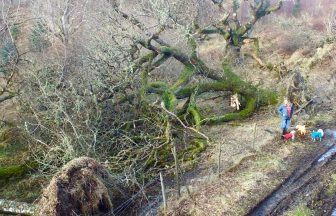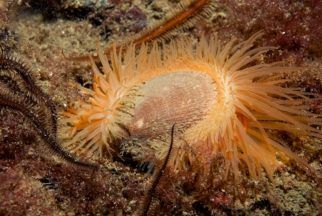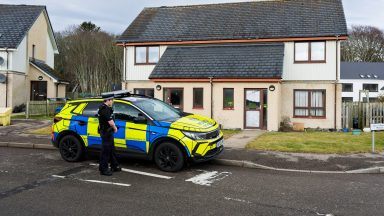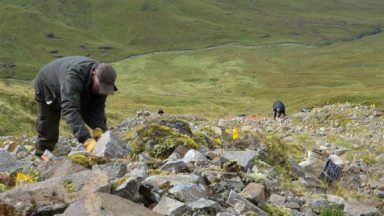The wife of a man accused of murdering his three-year-old-son and the boy’s mother asked police why she was being questioned, as she “never stabbed her or whatever happened to her”, a court has heard.
However, Rosemary MacDowell, 80, insisted her remark was made on the “spur of the moment” and that there was “nothing meant by it”.
The witness was giving evidence in the case against her husband, William MacDowell, 80, of Penrith, Cumbria, who is accused of murdering his son, three-year-old Andrew MacRae, and the child’s 36-year-old mother, Renee MacRae, in November 1976.
Mrs MacDowell gave evidence at the High Court in Inverness for more than an hour on Tuesday, telling the jury that the couple and their two daughters kept horses at their home in Nairnside, near Inverness, and on the evening of November 12 1976 the animals escaped.
She told jurors the horses must have got out of their paddock when her husband arrived home and left the gates open, “whenever he was going to unload whatever he had in the back of his car”.
The witness told the court she first thought it was wood he was unloading, but added that it was boxes of nails.
Mrs MacDowell has given multiple statements to police since Mrs MacRae vanished, the court was told, including one the prosecution told the jury was taken on the 10th anniversary of the disappearance of the mother and son.
She told detectives: “I don’t know what you’re getting on at me for. I never stabbed her or whatever happened to her.”
Mrs MacDowell said she made the comment to police on the “spur of the moment”.
Advocate depute Alex Prentice KC asked her: “Spur of the moment? This is an inquiry, a massive inquiry, into the disappearance of Renee MacRae and Andrew MacRae.”
Mrs MacDowell told the court it was “just a comment” she made, and there was “nothing meant by it”.
Mr Prentice asked if she knew Mrs MacRae had been stabbed, and Mrs MacDowell told the court she did not know.
“It just came out as one does when one gets annoyed,” she said.
The court also heard how she told her husband to leave a police interview in Inverness in December 1976, where she asked a police cadet to talk to MacDowell and that her husband should go.
MacDowell, 80, is charged with assaulting Mrs MacRae and Andrew at the Dalmagarry layby on the A9 trunk road south of Inverness, or elsewhere, by means unknown, and as a result murdering them.
He is also charged with disposing of their bodies and belongings by means unknown.
MacDowell denies all charges and has lodged a special defence of incrimination and alibi, part of which asserts that he arrived at home at about 8.15pm on November 12 1976 where he stayed until the following morning.
During her questioning, Mrs MacDowell was asked if they kept protective clothing MacDowell got from job sites. She told the court they would have had protective clothing on the property because they kept horses.
The court heard the family were meant to be going out for dinner that evening, but their plans had been cancelled. She then made dinner for herself and the children, the court was told, and then the two girls watched television.
Mrs MacDowell will continue to give evidence to the trial on Wednesday.
Earlier in the day, the High Court heard from Martin Shand, who was studying at the Dundee College of Technology at the time of the mother and son’s disappearance.
He told the jury that on the evening of November 12 1976 he was being driven home by a friend and another student when they travelled past the Dalmagarry layby on the A9 near Inverness, where the burnt-out BMW car owned by the missing woman was discovered.
The 65-year-old said the layby “had a certain reputation for courting couples”, and that evening he was being driven alongside it between 7.30pm and 8pm.
The retired engineer told the court: “We passed the layby at a very low speed because the surface of the road being quite badly disturbed because of the roadworks. Probably at walking speed.”
Mr Shand said there were two vehicles in the layby. “The first was a pale-colour BMW. The second one was a Volvo,” he said.
The court has previously heard MacDowell was issued with a Volvo as his company car.
Mr Shand added he saw “two people with their backs to the main road”. He told the jury: “It’s guesswork, but I would say from the build it was two male persons.”
After they passed, Mr Prentice was told, Mr Shand spoke with those in the car with him about their encounter and said they believed it was “some sort of social encounter”.
Ninety-year-old Nan MacDougall told the court she was travelling back from Edinburgh to her home in Inverness when she saw someone on the side of the road.
“It was a very, very bad night. Water was washing across the road even to the extent of washing gravel across the road. An atrocious night, really,” she told the court.
“It was a slow journey and somewhere up in the Highlands I noticed somebody walking towards me,” she said, and added that the person appeared to be pushing a pushchair about 30 minutes’ drive outside Inverness.
“I thought it was very unusual for somebody to be out in such awful conditions with a child,” the court was told.
The trial, before Lord Armstrong, continues.
Follow STV News on WhatsApp
Scan the QR code on your mobile device for all the latest news from around the country


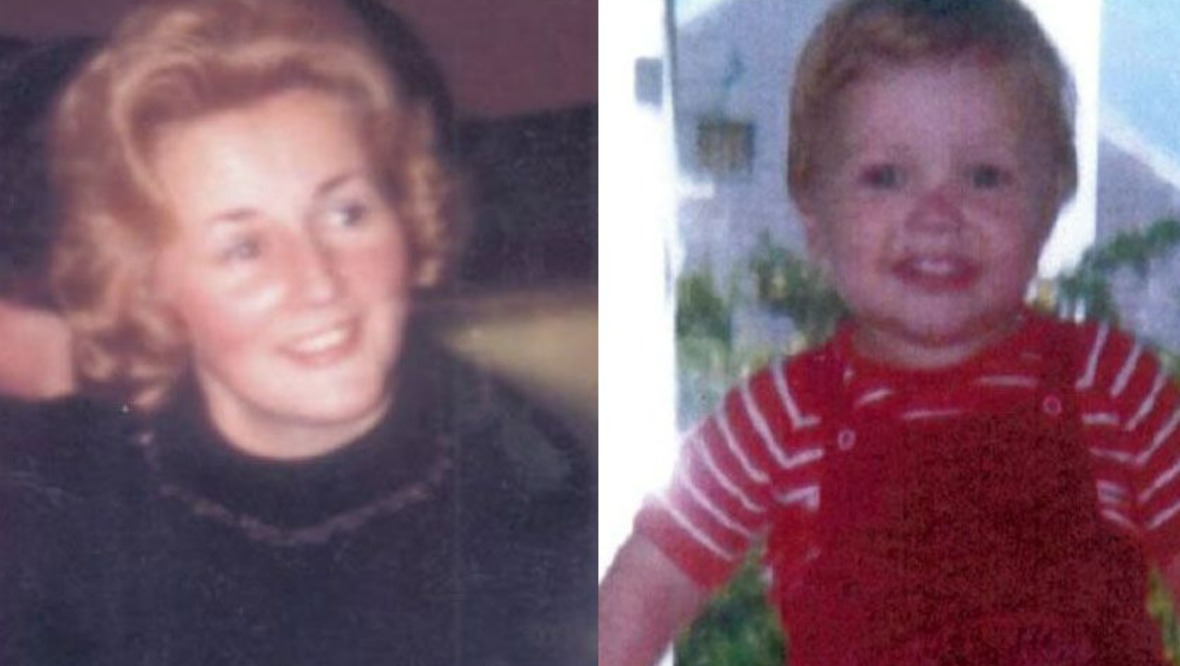 Police Scotland
Police Scotland








